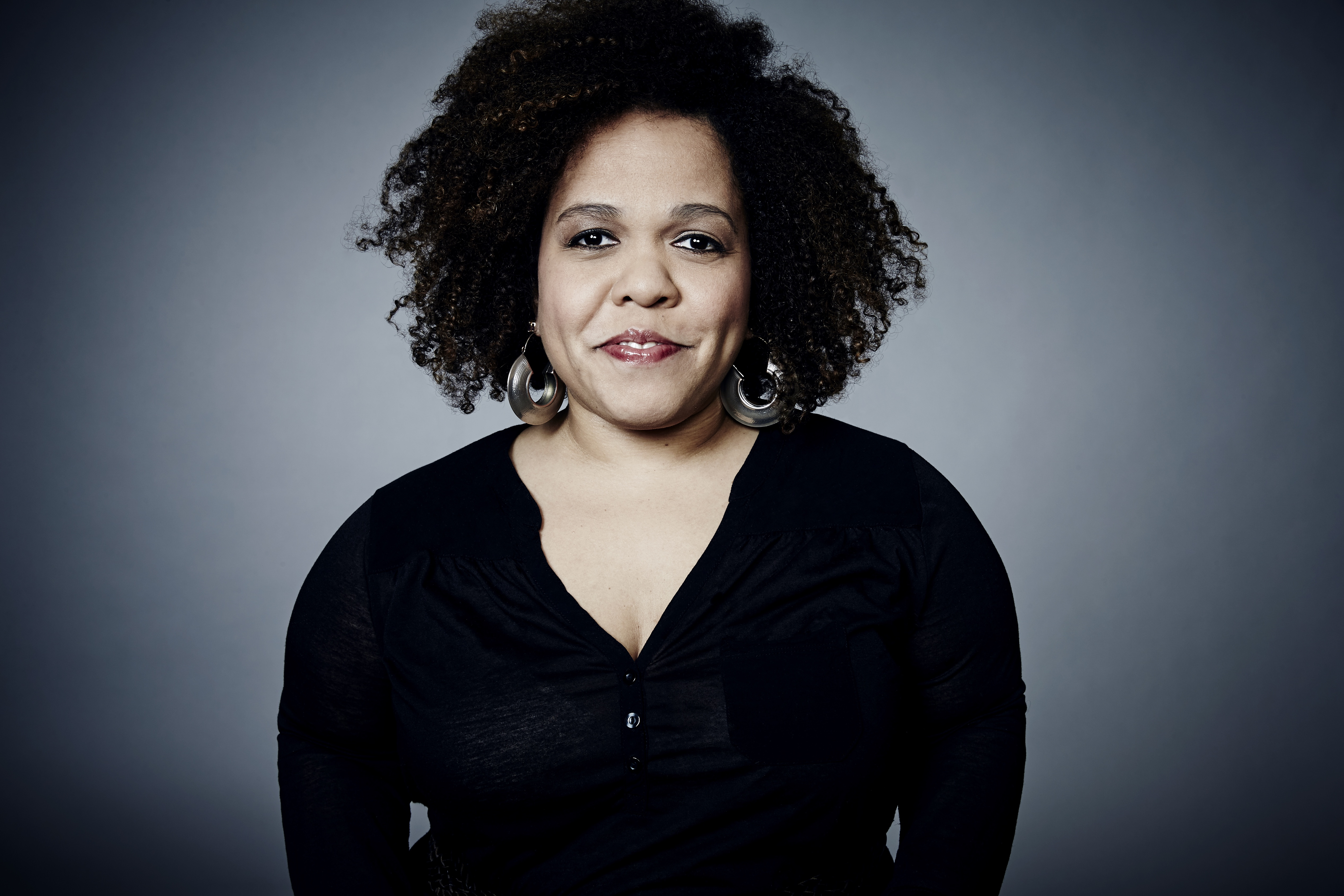
News
Controlling Your Own Narrative
Play audio version
Introducing DJP Mentor Cara Reedy
June 7, 2022
“[My] childhood was privileged in one respect in that I didn’t want for anything material and had the best educational opportunities. But, as a Black dwarf girl child, I was harassed a lot because of my dwarfism,” says Cara Reedy, a journalist with achondroplastic dwarfism and a newly appointed mentor to the Disability Justice Project. “People felt even freer back then to comment on my body, and many made a point to let me know I wasn’t normal,” she says.
Now 46, Reedy addresses the oppression she’s experienced as a little person through her work as a journalist, actor, comedian, and film director. In 2019, she released “Dwarfism and Me,” a documentary with co-producer Tim Silverstone, for The Guardian. “It was really well received by the audience. Most people were not aware of dwarf history in America. We were thanked a lot for bringing it to the forefront. There is so much disability history that needs to be explored and brought to light,” she says.
The documentary’s concept was drawn from how “history and our culture created this really abusive environment for people with dwarfism,” how “dwarfs were … talked about in … pre-modern culture and … what the effects of that are today,” says Reedy. Through “Dwarfism and Me,” Reedy and Silverstone found that persons with dwarfism still live with the effects of sideshows and circuses, and this objectification of persons with dwarfism has changed into reality shows like “Little People Big World,” “Little Women” (of Atlanta, NY, LA) and, says Reedy, “pretty much anything that comes on The Learning Channel.” Selene Luna, a Mexican-American comedian and actress with dwarfism, says in “Dwarfism and Me” that “little people are … portrayed in entertainment as a creature, a mystical monster.” Luna asks, “Why is it not important for little people not to be presented in a dignified manner?”
In 1998, Reedy received a political science degree at Loyola University in Chicago. She studied abroad at Lee Strasberg Theatre & Film Institute in London, where actress Mariana Hill taught her method acting. Since graduating, Reedy worked at CNN for ten years and has done freelance work with NPR. She has been in newsrooms for over 15 years and has passionately focused on documentary work.
Reedy believes persons with disabilities still face limited access to power, making it difficult for them to control their narratives. She suggests unity among persons with disabilities across the globe – for the goal of liberation and as a call to action. Fifteen percent of the globe’s population lives with disabilities. “Liberation looks different in different countries because systems are different in different countries, so I don’t feel like there’s a one-size-fits-all system fix, but there is a one group, one idea that we all should be raising each other up across the globe.”
Powered by her passion for creating spaces for media professionals with disabilities to lead conversations that most affect their lives, Reedy joined the Disability Media Alliance Project (DMAP) in June 2020 after its director watched “Dwarfism and Me.” According to its website, DMAP strives to bring the disability community and the media industry together “to promote accurate representation of people with disabilities” and to “eliminate disability stereotypes and misinformation in news, television, film, and other media.”
Reedy now works at Storyline Partners, a collection of leading advocacy organizations collaborating with the entertainment industry to tell more accurate and nuanced narratives that reflect the realities and richness of different communities. Though she’s left DMAP, Reedy continues to build the U.S.-based Disabled Journalists Association, a “place where journalists can come together and kind of have one voice to speak to newsrooms about their coverage of disabled people,” she says.
Reedy recounts experiences with discrimination in her career, particularly during her 10-year stint at CNN. “There was sort of a refusal to believe that I have these skills. I watched people that I trained move up and be executive producers while I still was on the bottom rung, and quite frankly I had to leave newsrooms in order to leave the discrimination,” she says. “It’s a difficult place,” In the next 10 years, Reedy aims to do more documentaries, movie-making, and screenwriting.
At the Disability Justice Project, Reedy looks forward to meeting more journalists and people with disabilities around the globe. She’ll be mentoring the upcoming cohort of Indonesian fellows. Additionally, she wants to understand how different cultures and systems treat persons with disabilities across Africa, where the DJP’s second cohort of fellows this year will be based. “I’m excited for this program,” she says. “I just think it’s the neatest thing.”
Nissy Namuyomba is a 2021 DJP Fellow and an administrative assistant at MADIPHA. @2022 MADIPHA. All rights reserved.
News From the Global Frontlines of Disability Justice
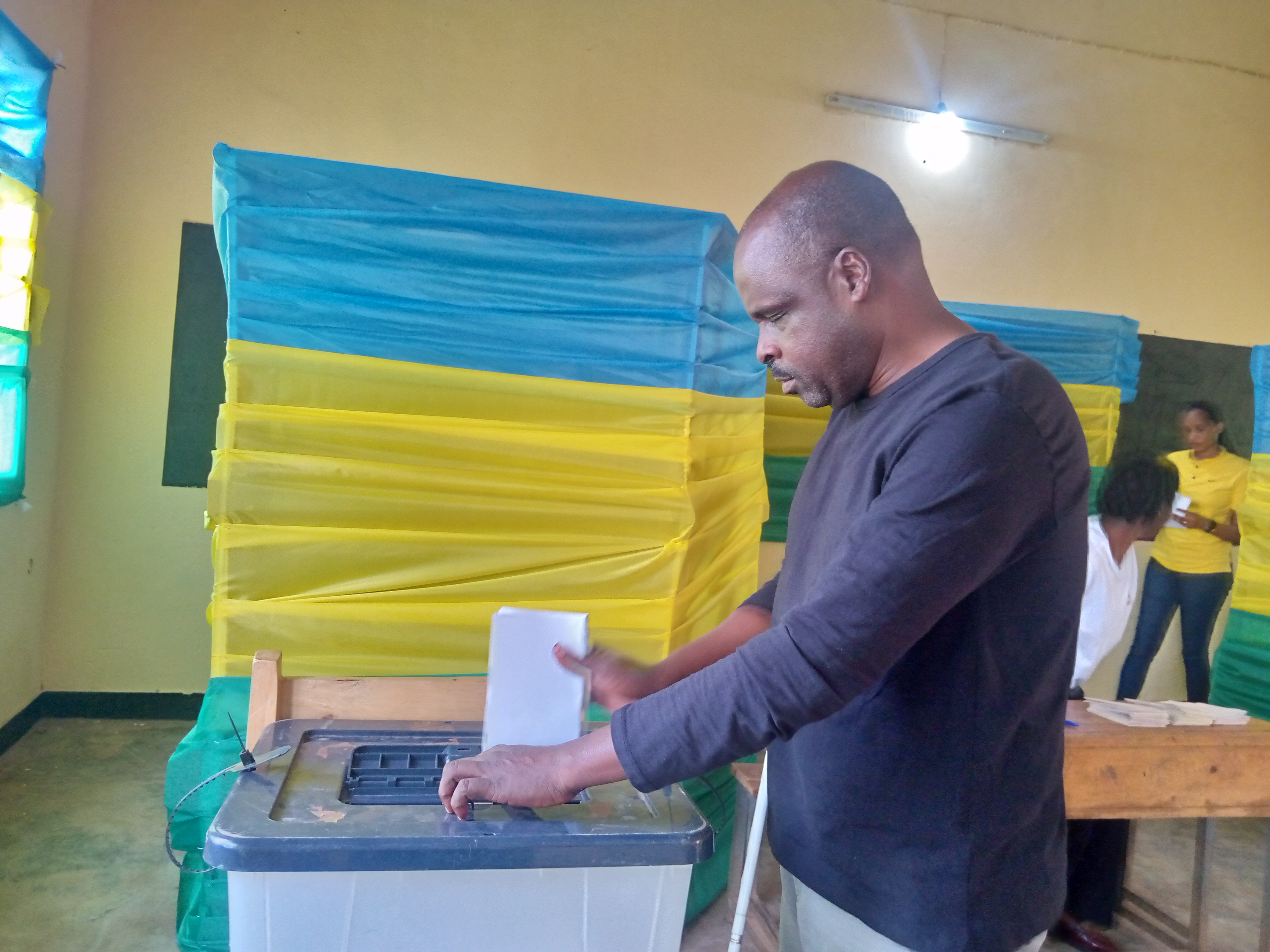
Advancing Democracy
Rwanda has made significant progress in making its elections more accessible, highlighted by the July 15 general elections where notable accommodations were provided. This was a major step forward in disabled Rwandans’ quest for equal rights and participation. “You cannot imagine how happy I am, for I have voted by myself and privately as others do accessibly,” says Jean Marie Vianney Mukeshimana, who used a Braille voting slate for the first time. “Voting is a deeply emotional and meaningful experience for a person with any disability in Rwanda, reflecting a blend of pride, empowerment, and hope.”
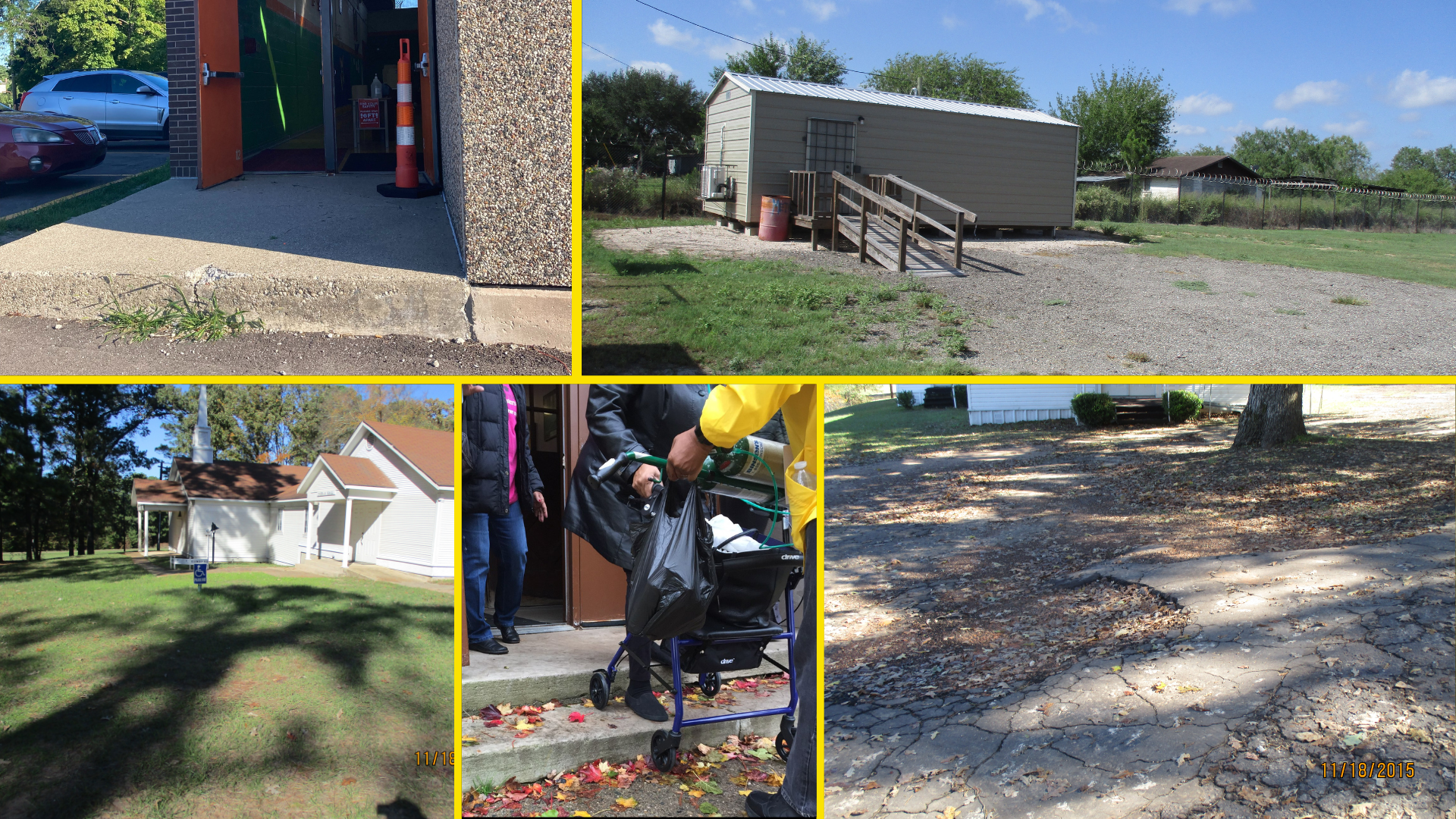
Barriers to the Ballot
Despite legislation like the Americans with Disabilities Act, barriers at the polls still hinder — and often prevent — people with disabilities from voting. New restrictive laws in some states, such as criminalizing assistance with voting, exacerbate these issues. Advocacy groups continue to fight for improved accessibility and increased voter turnout among disabled individuals, emphasizing the need for multiple voting options to accommodate diverse needs. ““Of course, we want to vote,” says Claire Stanley with the American Council of the Blind, “but if you can’t, you can’t.”
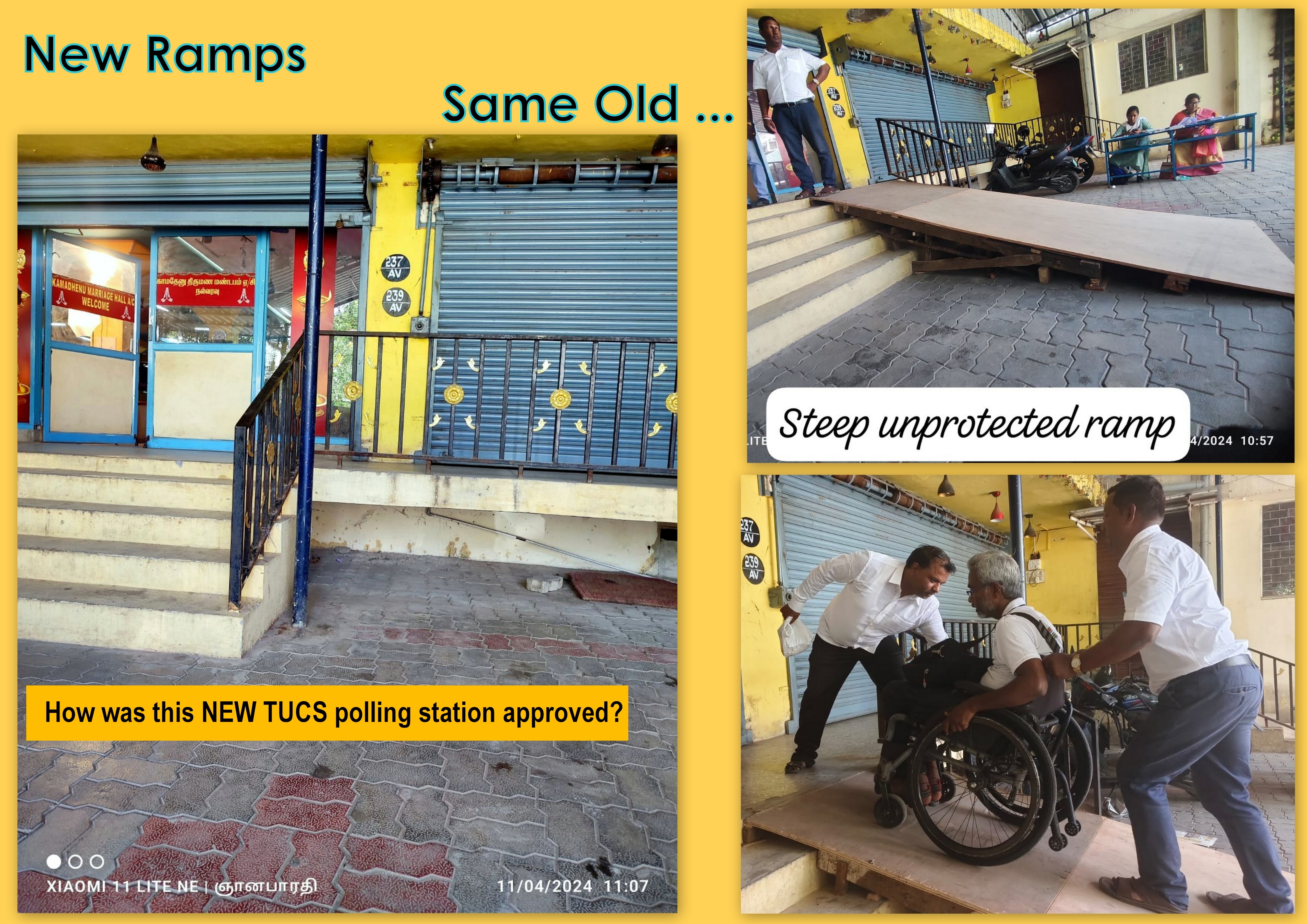
Democracy Denied
In 2024, a record number of voters worldwide will head to the polls, but many disabled individuals still face significant barriers. In India, inaccessible electronic voting machines and polling stations hinder the ability of disabled voters to cast their ballots independently. Despite legal protections and efforts to improve accessibility, systemic issues continue to prevent many from fully participating in the world’s largest democracy. “All across India, the perception of having made a place accessible,” says Vaishnavi Jayakumar of Disability Rights Alliance, “is to put a decent ramp at the entrance and some form of quasi-accessible toilet.”
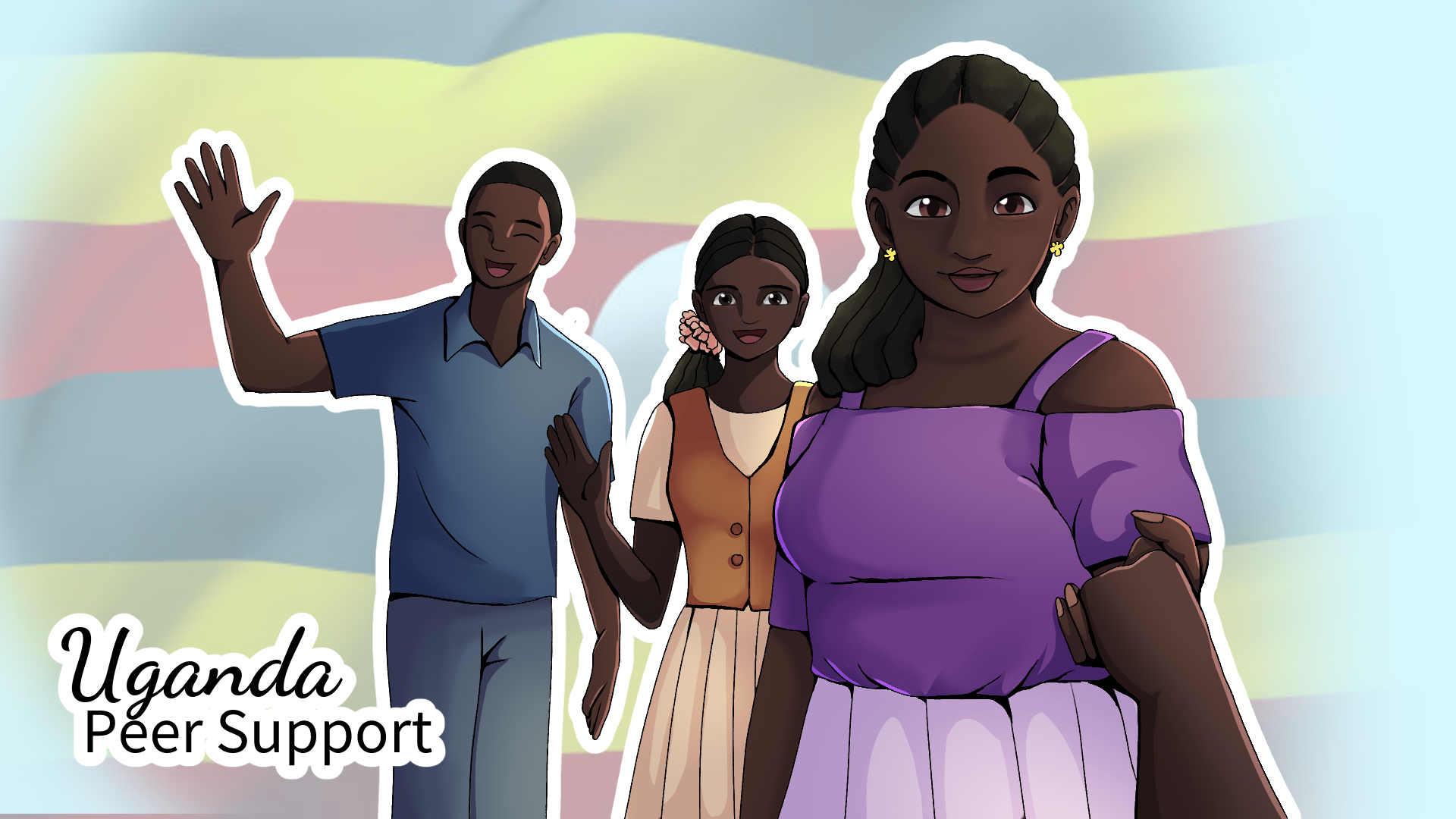
Triumph Over Despair
DJP Fellow Esther Suubi shares her journey of finding purpose in supporting others with psychosocial disabilities. She explores the transformative power of peer support and her evolution to becoming an advocate for mental health. “Whenever I see people back on their feet and thriving, they encourage me to continue supporting others so that I don’t leave anyone behind,” she says. “It is a process that is sometimes challenging, but it also helps me to learn, unlearn, and relearn new ways that I can support someone – and myself.”
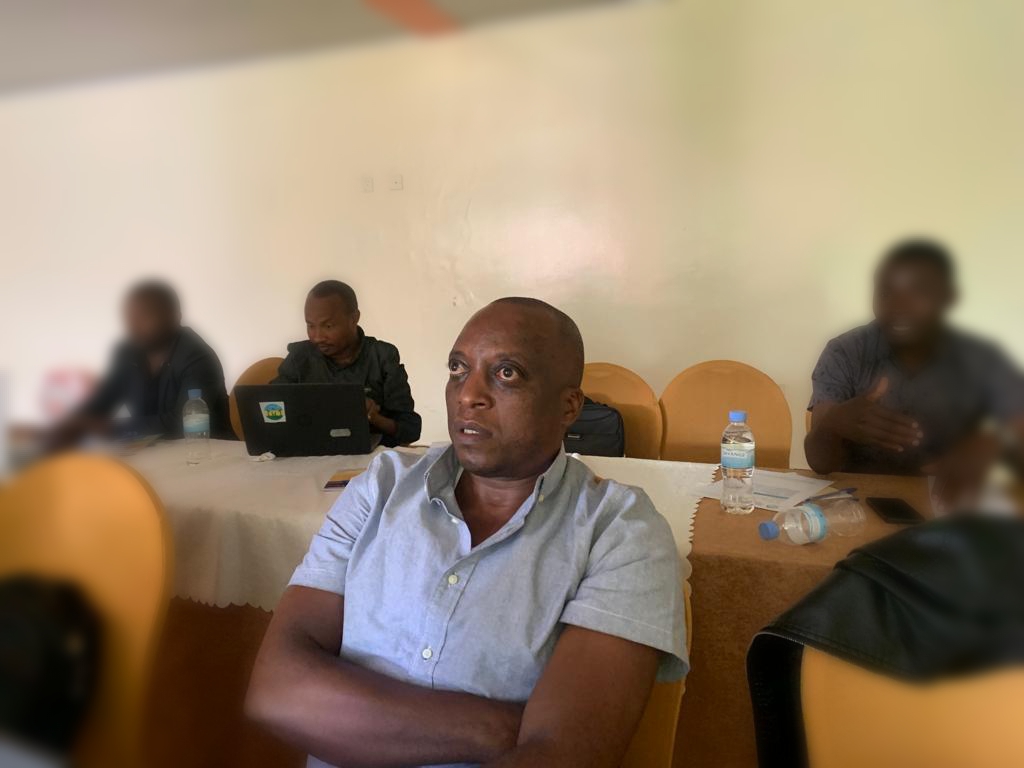
‘Our Vote Matters’
As Rwanda prepares for its presidential elections, voices like Daniel Mushimiyimana’s have a powerful message: every vote counts, including those of citizens with disabilities. Despite legal frameworks like the UN Convention on the Rights of Persons with Disabilities, challenges persist in translating these into practical, accessible voting experiences for over 446,453 Rwandans with disabilities. To cast a vote, blind people need to take a sighted relative to read the ballot. An electoral committee member must be present, violating the blind person’s voting privacy. “We want that to change in these coming elections,” says Mushimiyimana.
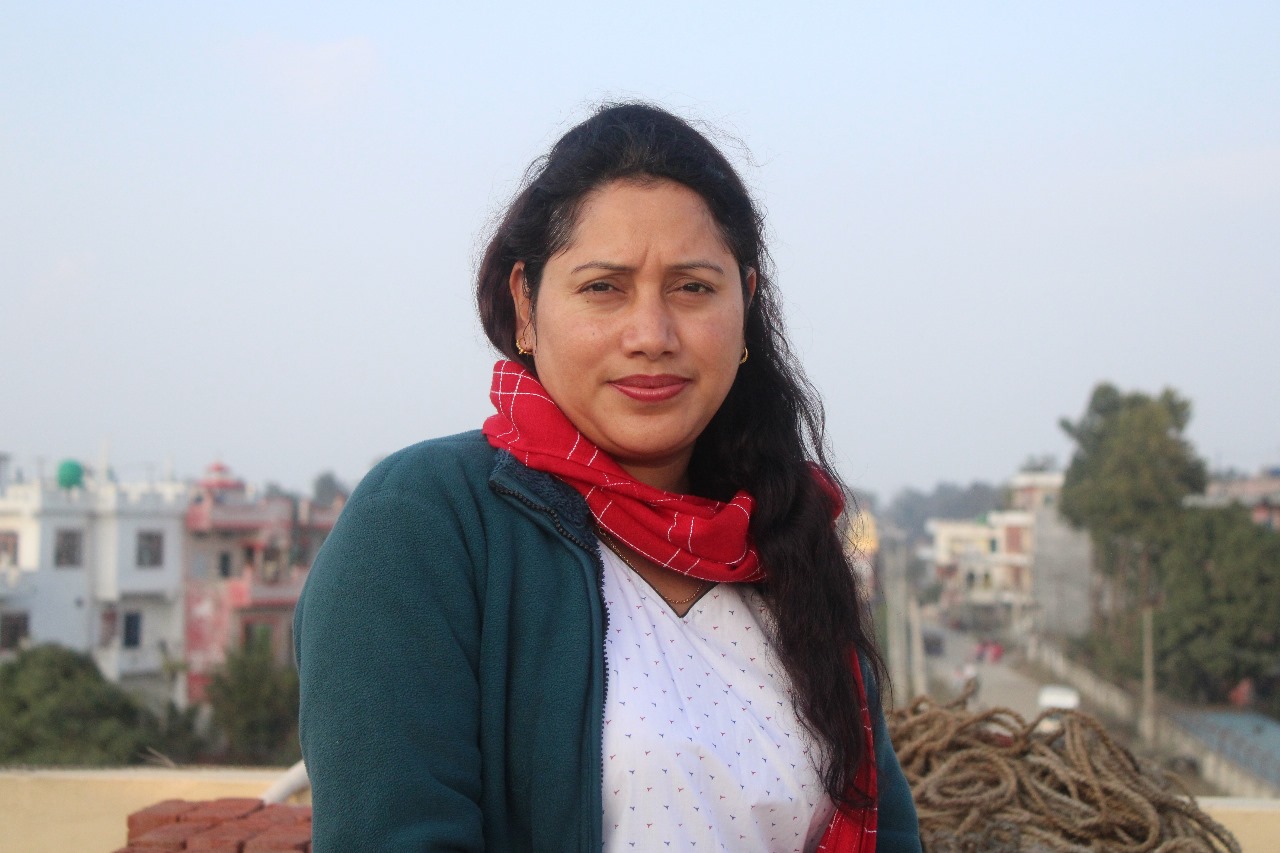
Voices Unsilenced
Often dismissed as a personal concern, mental health is a societal issue, according to Srijana KC, who works as a psychosocial counselor for the Nepali organization KOSHISH. KC’s own history includes a seizure disorder, which resulted in mental health challenges. She faced prejudice in both educational settings and the workplace, which pushed her towards becoming a street vendor to afford her medications. Now with KOSHISH, she coordinates peer support gatherings in different parts of Nepal. “It is crucial to instill hope in society, recognizing that individuals with psychosocial disabilities can significantly contribute,” she says.